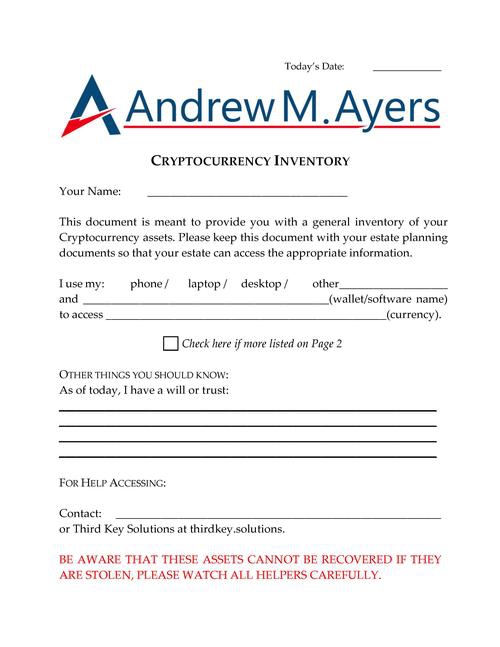 Bitcoin assets were on my mind yesterday as I attended a virtual conference on estate planning. One of the presenters was Pamela Morgan who devotes part of her practice to how to create plans for inheriting bitcoin assets. Although many people do not own bitcoin assets, that is rapidly changing. Unfortunately, many times, bitcoin is used by hackers as a way to demand a ransom when they have gained control of your computer. This week, bitcoin was in the news for its use in a scam where hackers took over the Twitter accounts of some very famous folks and attempted to scam followers into sending bitcoin to the hackers. There were some pretty big names who had their accounts hacked:
Bitcoin assets were on my mind yesterday as I attended a virtual conference on estate planning. One of the presenters was Pamela Morgan who devotes part of her practice to how to create plans for inheriting bitcoin assets. Although many people do not own bitcoin assets, that is rapidly changing. Unfortunately, many times, bitcoin is used by hackers as a way to demand a ransom when they have gained control of your computer. This week, bitcoin was in the news for its use in a scam where hackers took over the Twitter accounts of some very famous folks and attempted to scam followers into sending bitcoin to the hackers. There were some pretty big names who had their accounts hacked:
- Bill Gates
- Kanye West
- Elon Musk
- Joe Biden
- Barack Obama
What are Bitcoin Assets?
There are a variety of places you can go on the web to learn about bitcoin. This week, the Wall Street Journal did a short FAQ -style article on bitcoin and answered questions such as:
- Is bitcoin actually money?
- Why did the hackers ask for bitcoin in the first place?
- Is bitcoin traceable?
- So can we track the thieves?
- Then why can’t we get the money back?
- How successful was this scam at getting real money?
- Is there any recourse for people who sent bitcoin to the hackers?
As you can see from the questions, the Wall Street Journal focused on the recent Twitter hack as the context for its article.
Are There Legitimate Uses for my Bitcoin Assets?
Even though bitcoin is in the news for the wrong reasons, many people have bitcoin assets for legitimate purposes. Often, these people understand the bitcoin market more than your average person off the street. According to the presentation I attended, the market cap for bitcoin is approximately $262 billion. So, there’s some significant value attached to bitcoin. There are merchants and businesses that will accept bitcoin as payment for their goods and services. Years ago, I represented a client in a divorce case where her husband had bitcoin and gold bars (like the ones you’d find in Fort Knox) and we had to deal with how to value and divide up those assets.
Estate Planning for my Bitcoin Assets
If you own bitcoin or another cryptocurrency, then you’ll want to make sure that your estate plan has a plan for what happens to them if you die. There are two parts to the plan, the tech aspect and the legal aspect. Without both parts in place, you could be leaving significant assets without protection in your documents. An important document you’ll need for your plan is an inventory or other list of your cryptocurrency assets and how you access them. It’s also important for you to identify a “helper” who can work with your executor or personal representative to manage the smooth transfer of your assets after you’re gone.
Next Steps
If you own Bitcoin or other cryptocurrency, make sure you have an inventory kept with your estate plan documents. You can download the Cryptocurrency Inventory used by my clients for free and if it's time to update your estate plan or create one for the first time, let's set up a Legal Strategy Session to discuss the best options for you and your family.


